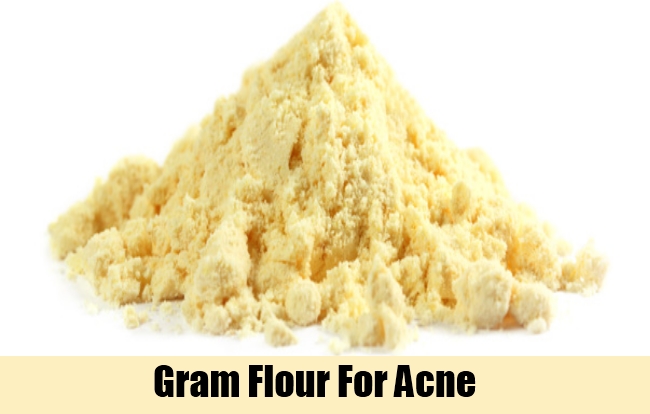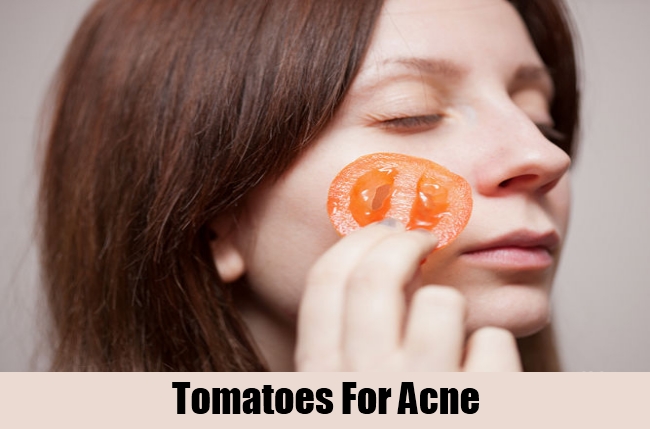[toc]Acne or acne vulgaris is a skin disease that occurs in the sebaceous or oil glands at the base of hair follicles. The tiny pores that we see at the surface of our skin are connected to the sebaceous glands through these follicles. The follicles carry dead cells and bacteria infected sebum to the surface of the skin and causes acne. In most of the cases, acne occurs during adolescence and continues through adulthood.
This is because there is a considerable increase in testosterone accumulation in both both males and females at this age, which stimulates the sebaceous glands to secrete more oils. It is not possible to prevent the formation of acne entirely, however, their eruption can be controlled by adopting a healthy lifestyle and effective home remedies that aids in cleansing and purifying the skin.
Ways To Get Rid Of Acne
Gram Flour
Worth Buying
Gram flour or besan in hindi can extract the toxins and dust from inside the pores, due to its deep pore cleansing properties. Its antimicrobial properties help in reducing any skin infection. It dries up the acne by removing excess oils from the skin and can also be uses as a scrub for removing dead skin cells and blackheads due its exfoliating properties. Make a paste of besan and water and apply it as a face pack. You may also use rose water or yogurt in place of water. Leave the face pack for 15 minutes and wash off with water.
Tomatoes
Tomatoes are enriched with vitamin A which helps in nourishing and rejuvenating our skin. Its anti-inflammatory, anti-bacterial and antiseptic properties makes it a natural antidote against acne and pimples. Its acidic nature removes excess oil from the skin and deep cleanses the pores.
Its abilities to accelerate the growth of new skin cells automatically removes the damaged skin along with the scars in it. Apply the pulp of a freshly cut tomato on your face including the acne affected area and leave it for about 10 minutes and then wipe off with a damp cotton ball. Apply it every day on your skin in order to get an acne free flawless skin.
Sandalwood
Sandalwood is very effective in removing acne and blemishes. Obtained from santalum tree, sandalwood has been used since ages in ayurvedic skin treatments. It is popular not only for its medicinal properties, but also for its fragrance.
Moreover, its antimicrobial and cicatrizant properties helps in absorbing the excess oil from the skin. Sandalwood paste has a calming and soothing effect on the skin that helps in removing acne, pimples and blemishes. Apply some sandalwood paste on your skin and allow it to dry. Wash off with water to get a smooth, non-greasy and supple skin.
Vitamin E
Vitamin E acts as a protective shield against the damages that are likely to be causes by free radicals due to UV radiation, dust, pollution, etc. Its antioxidant properties not only protects the skin but also regulates the level of vitamin A which helps in strengthening the capillary walls and protecting the red blood cells.
Therefore, including vitamin E in sufficient quantity in our daily diet gives protection against acne, pimples, etc. They are found in abundance in vegetables and fruits. Broccoli, carrots, leafy green vegetables and herbs, papaya, raw mango, almonds, olives, kiwi, etc. are some rich sources of Vitamin E.
Turmeric
Turmeric or haldi is a natural disinfectant and kills the bacteria that causes acne. It has been used since centuries as a beauty product as well as in ayurveda. This is the reason why it is considered auspicious and beneficial to apply haldi on the skin of the bride and the groom, as a ritual, during marriage ceremonies. Applying turmeric can reduce the secretion of oil or sebum by the sebaceous glands.
Although, it is convenient to use turmeric powder, the results are more effective if you use raw turmeric paste. Add a few drops of lemon lemon juice and water in half a teaspoon of turmeric paste and apply it on the skin. Leave the paste on the skin for not more than 5 to 10 minutes.
Healthy Lifestyle
To prevent acne, it is important to get a good night’s sleep because sleep deprivation can raise the stress level. According to Sonia Badreshia-Bansal, a dermatologist in Danville, Calif, stress increases the production of a substance called glucocorticoid, which can lead to skin disorders like acne. Drink 8 to 10 glasses of water to flush out harmful toxins and keep the body hydrated.
You should also cleanse your skin at least twice a day and exfoliate it regularly, in order the remove the accumulation of dead skin cells and dirt from the skin’s surface. Avoid using moisturizers and oils on an acne affected skin and keep your nails away from the affected area, so that the infection does not spread further.
























